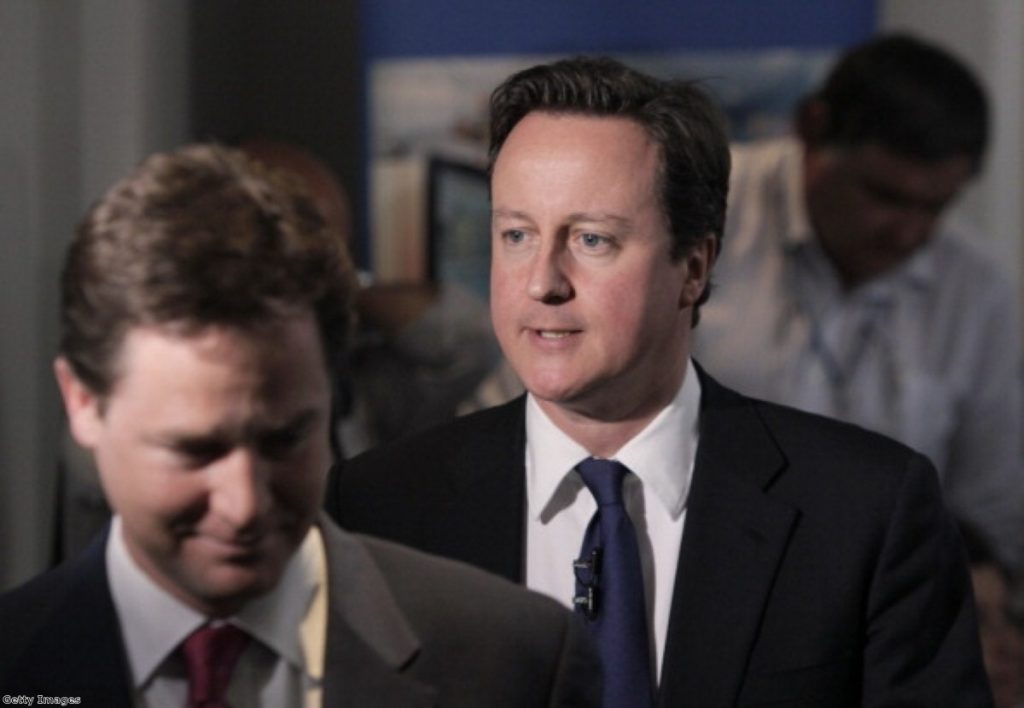Cabinet confronts coalition’s EU divisions
By Alex Stevenson Follow @alex__stevenson
Warring Conservative and Liberal Democrat ministers are seeking to patch over their differences as the row over David Cameron's European Union veto continues.
The Cabinet spent nearly an hour discussing the issue this morning. Deputy prime minister Nick Clegg, who absented himself from Mr Cameron's statement to the Commons yesterday, spoke after the PM and chancellor George Osborne.
"Clearly there are differences of views on Europe within the coalition, but there is also a lot of common ground," the prime minister's spokesman said, citing commitment to the single market and a desire to end the eurozone crisis as examples.


"There is an understanding that both parties come from different positions on the issues of Europe, but members of the Cabinet understand different people have different views."
The atmosphere was described as the "same as usual" after yesterday's acrimony saw the divide between the two governing parties intensify.
The Liberal Democrat leader had said that "isolation in Europe" was a "bad thing" for British jobs, growth and "the livelihoods of millions of people in this country".
But Mr Cameron received praise from Tory eurosceptics in the Commons chamber for his refusal to sign up to a European fiscal integration pact, which every other EU country except Britain is now expected to sign.
Mr Clegg was not kept in touch with developments at the summit as they happened, prompting a recognition in today's Cabinet that that situation will have to change in future.
No 10 said the process by which the deputy prime minister was kept informed of future developments on negotiations with Europe was discussed.
"Clearly we will have to think about the process and how we do things," the PM's spokesman added.
Senior Conservative and Lib Dem figures took to the airwaves overnight to reassure Britain that the row would not result in the premature collapse of the government.
Lib Dem deputy leader Simon Hughes said: "The Liberal Democrats joined the coalition in the national interest. We did so to deliver a coalition that will be secure for five years and it will be."
'Not 17-plus, but 27-minus'
In Strasbourg earlier today the European parliament heard from European Union president Herman Van Rompuy, who indicated that he expected an intergovernmental treaty between the EU's member states – minus Britain – could be ready to sign by March.
MEPs from across the continent were critical of Britain's decision to exclude itself from the fiscal integration measures, after European Commission president Jose Manuel Barroso said Mr Cameron's negotiating position made compromise "impossible".
"The United Kingdom, in exchange for giving its agreement, asked for a specific protocol on financial services which, as presented, was a risk to the integrity of the internal market," he told the parliament.
"This made compromise impossible. All other heads of government were left with the choice between paying this price or moving ahead without the UK's participation and accepting an internal agreement among them."

